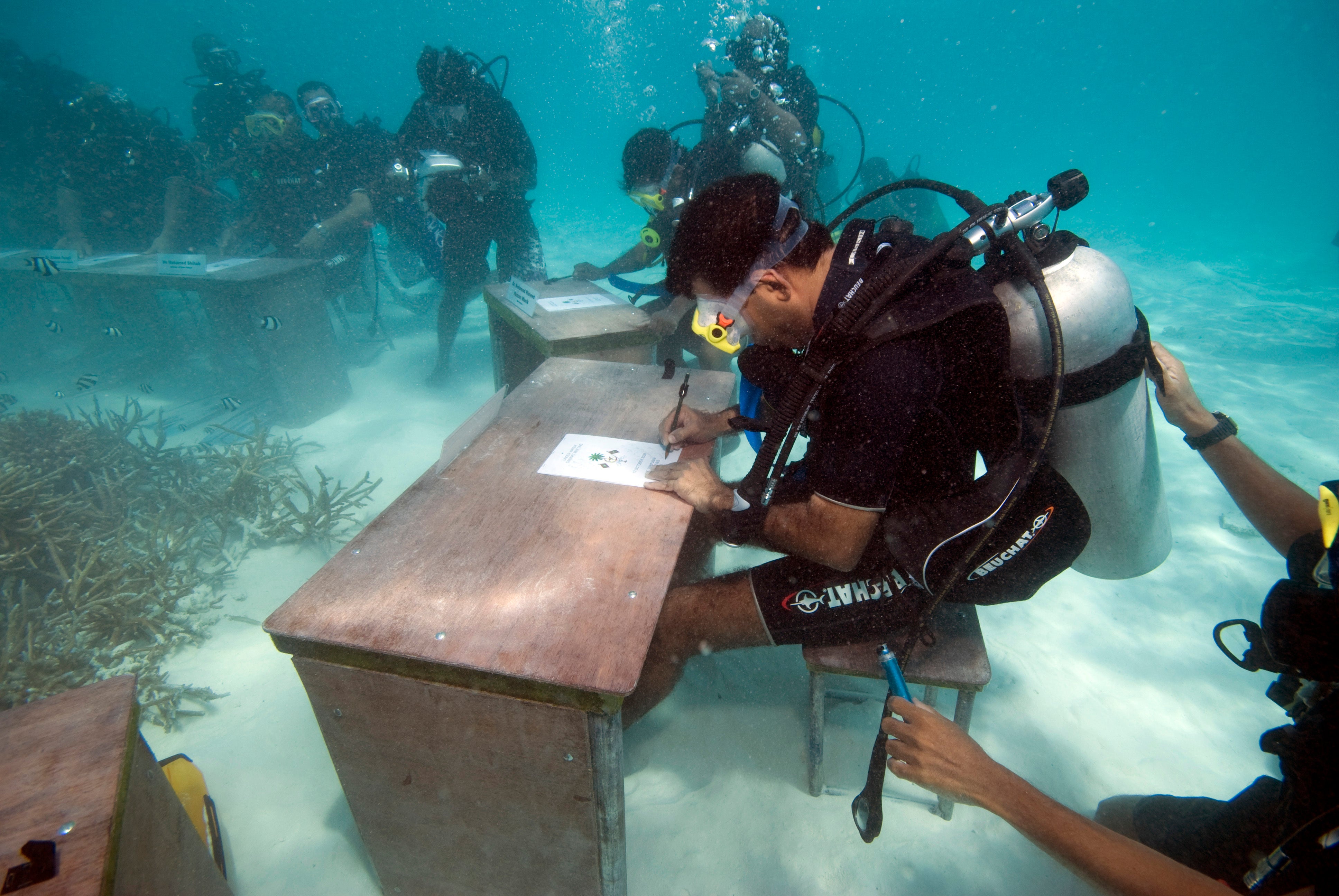Maldives minister: Failure to limit warming a death sentence
The Maldives' environment minister says a failure to limit global warming could mean a “death sentence” for small island nations, including the end of their livelihoods and cultures

A failure to limit global warming could mean a “death sentence” for small island nations like the Maldives including the end of their livelihoods and cultures, the country’s environment minister said Wednesday.
Almost all countries signed the 2015 Paris climate accord, aimed at limiting global warming to 2 degrees Celsius (3.6 degrees Fahrenheit) above levels in the late 19th century, and ideally no more than 1.5 C (2.7 F). But the world already has warmed nearly 1.1 C (2 F), scientists say.
A report from the Intergovernmental Panel on Climate Change said earlier this year that the world is likely to exceed the 1.5 C increase in the 2030s, earlier than expected.
“The difference between 1.5 degrees and 2 degrees, for us, really is a death sentence,” Aminath Shauna, the Maldives’ minister for environment, climate change and technology, said in an online interview with The Associated Press from Male, the Maldives' capital.
Speaking ahead of a key U.N. climate summit known as COP26 that starts in Glasgow, Scotland, on Oct. 31, she said she hopes the world will commit to large-scale and rapid actions to limit warming to 1.5 C, and that failing to do so would leave small island nations struggling to survive.
The Maldives has nearly 1,200 islands, of which 189 are inhabited by its 540,000 people. The islands average just a meter (3.3 feet) above sea level and are threatened by rising seas and stronger storms that have left no uncontaminated fresh water anywhere in the nation, she said.
“The question really is: What is not at stake? Our survival, our food, our income,” she said.
She said rich nations need to fulfil their Paris promise to spend $100 billion annually to help poorer nations cope with the impact of climate change and switch to cleaner energy.
So far, the Green Climate Fund established by the agreement has approved only one adaptation project in the Maldives, and even that took three years, she said. With climate change impacting the islands rapidly, by the time funds are approved, the situation on the ground has already changed, she said.
The Maldives spends 50% of its national budget on efforts to mitigate the worst impacts of climate change, such as sea walls to protect coral reefs. But the coronavirus pandemic has decimated its tourism industry and shrunk its economy by a third, Shauna said.
“The finance has not reached the Maldives and small island states,” she said, adding that the process for rich countries to declare that they have released funds needs to be more transparent.
Shauna added that countries should also be given more time to repay. Because climate change didn't happen in 10 years, the developed world and financial systems shouldn't expect that the money should be repaid in a short time, she said.
“We really need to unlock the financial system,” she said.
Shauna said she couldn’t measure the cost of failure in numbers. “We’re talking about losing a culture, our way of life and livelihoods. And you can’t value these in dollars,” she said.
She said the impacts of climate change — heavy rainfall, flooding, coastal erosion, inadequate drinkable water and the need to completely alter lives and livelihoods — have already become part of the norm.
The Maldives has no alternative but to be optimistic and hope the world will come together and take action, Shauna said.
“Maldivians deserve to live,” she said.
___
Ghosal reported from New Delhi.
___
The Associated Press Health and Science Department receives support from the Howard Hughes Medical Institute’s Department of Science Education. The AP is solely responsible for all content.
Bookmark popover
Removed from bookmarks